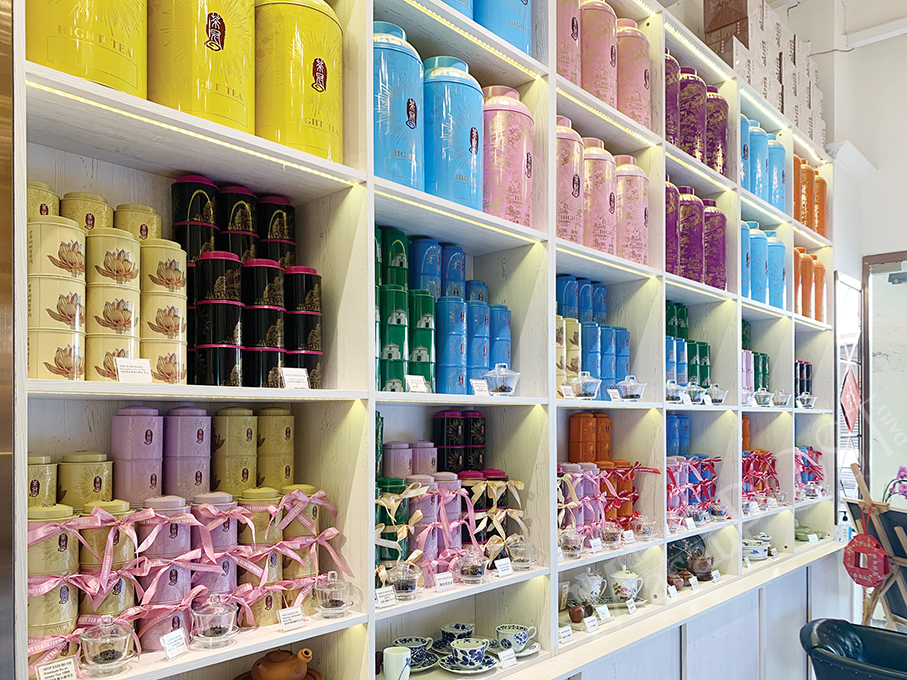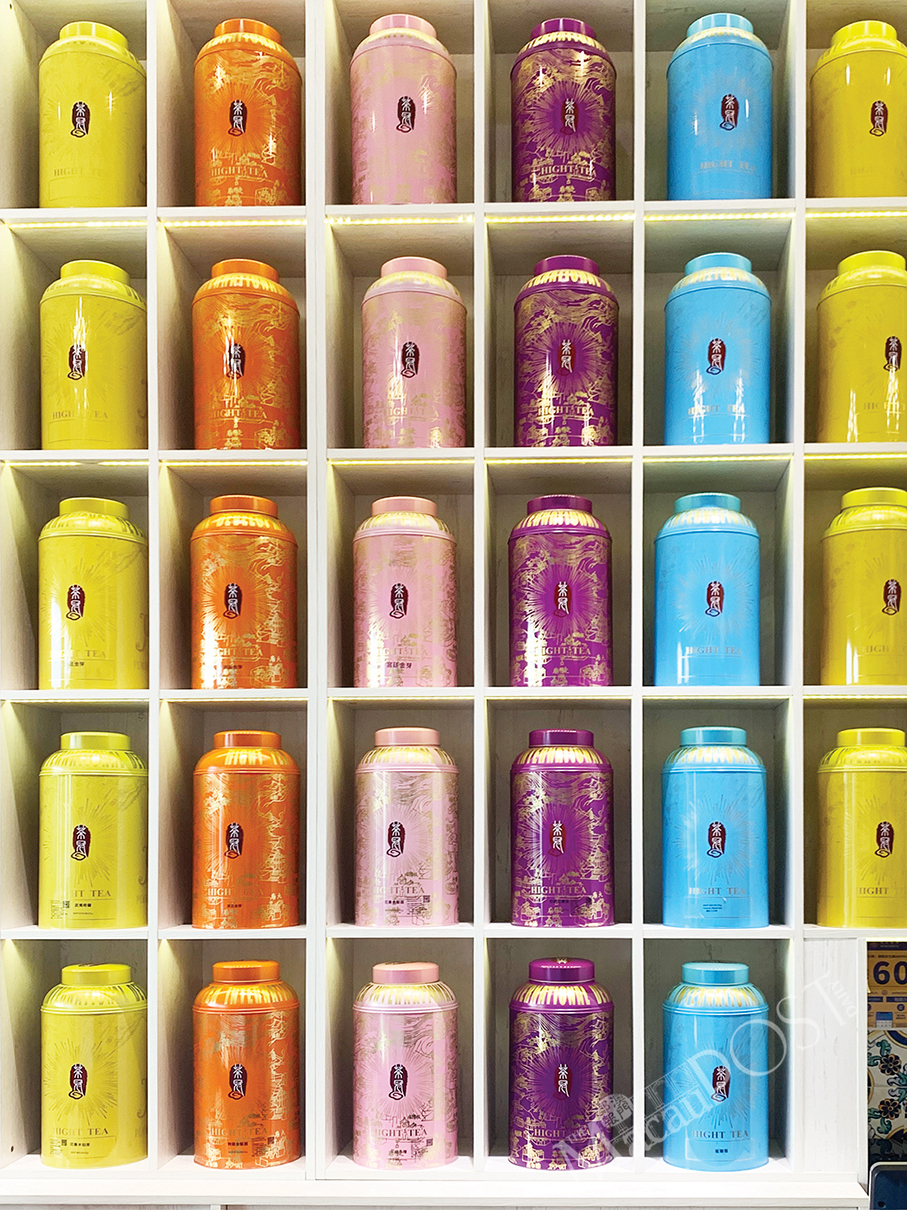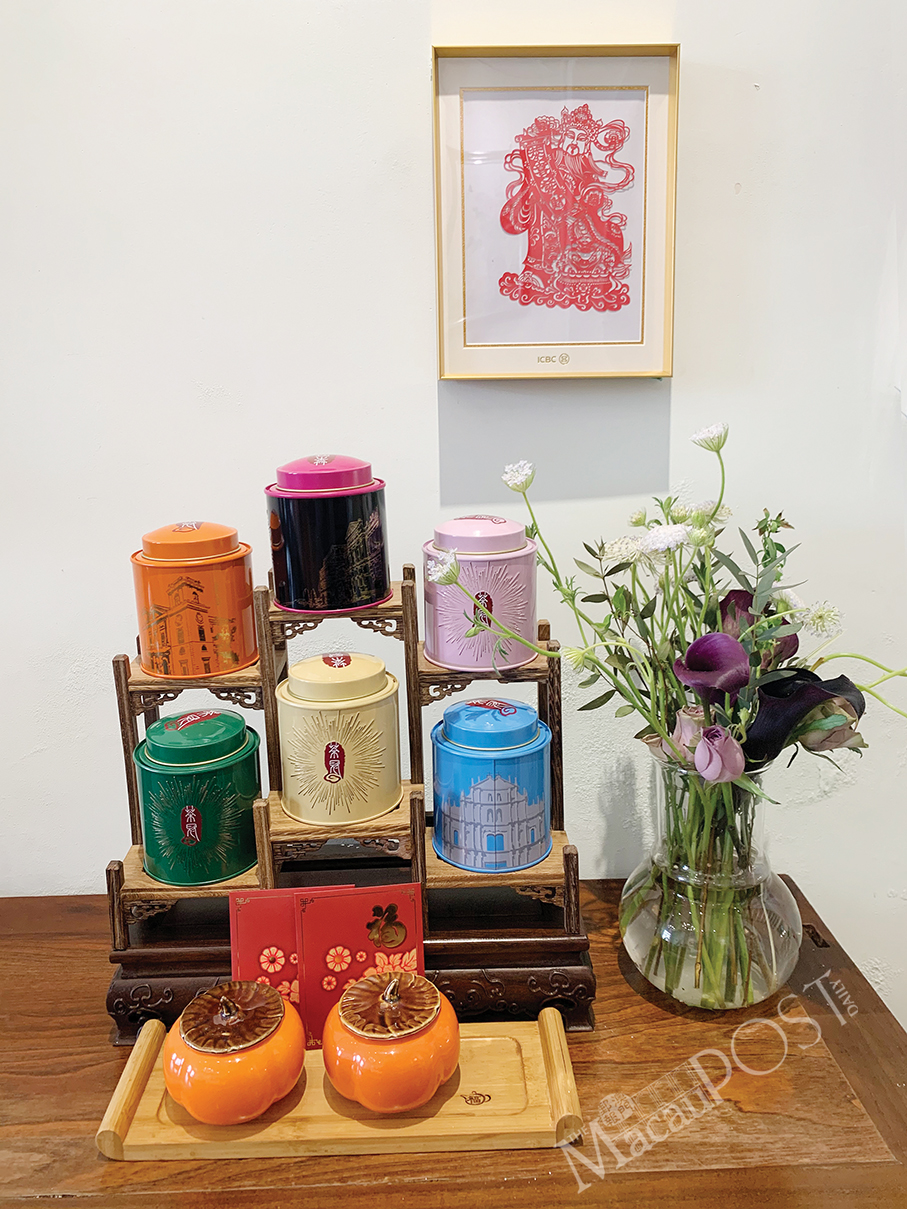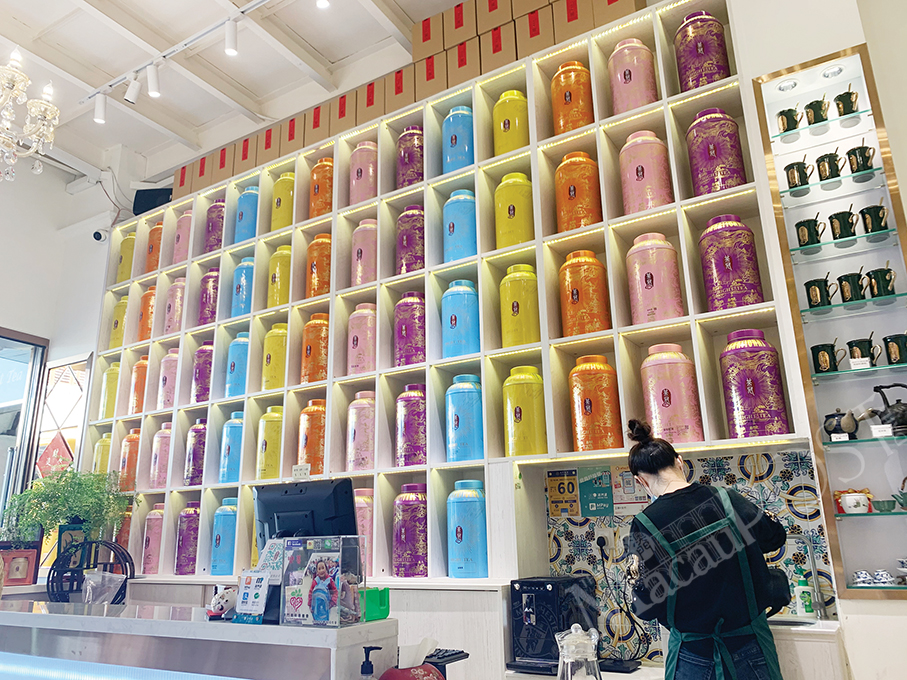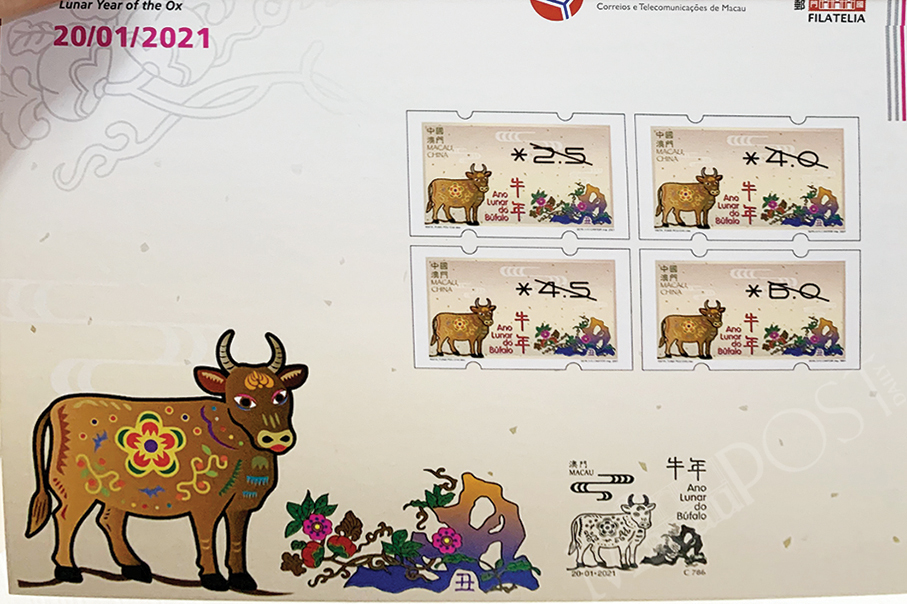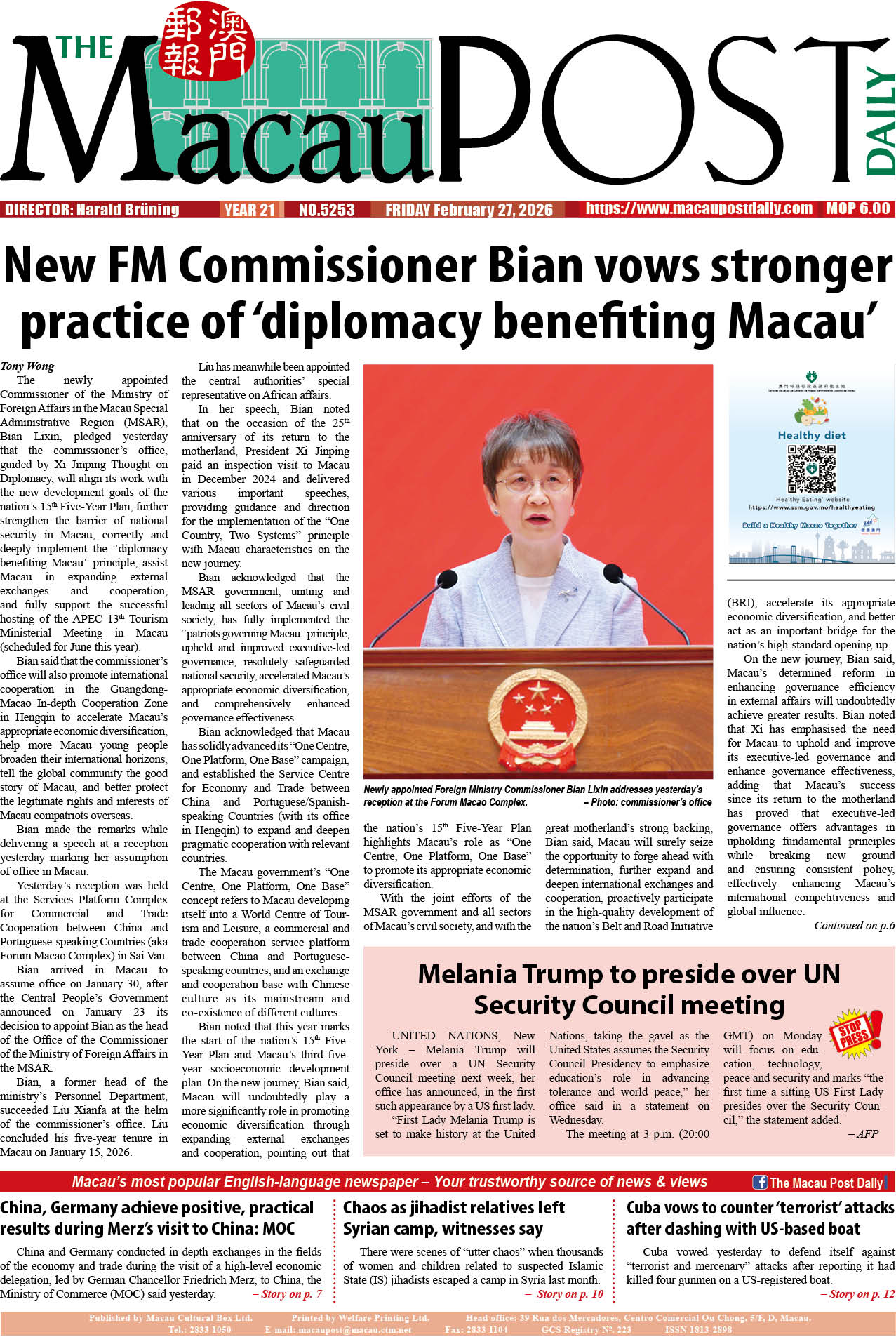Prisca Tang
Practising Chinese tea culture is not just about making tea but also about training one’s patience, humbleness and purity, Tea Art Professionals’ Association of Macau President Mandy Chan Pui Lan told The Macau Post Daily recently.
Chan made the remarks last week at her tea house in Avenida de Almeida Ribeiro (San Ma Lou).
Chan said that she started her association in 2012 with a group of tea lovers. She said they started the group with the aim of promoting tea culture to the general public.
Tea sommeliers in demand
Chan noted that when the government liberalised the casino sector, sparking a boom which quickly turned Macau into the world’s top gaming destination, a lot of new hotels were in need of tea sommelier. She pointed out that in 2008 mainlanders gradually become the main group of casino VIPs and more tea was requested. She said that hotels would ask her for a tea sommelier to show them the proper way to prepare tea and gain a wide knowledge on the subject. She said that even banks and major businesses were also looking for tea sommelier, so they could know what kind of tea would be an appropriate gift for their VIPs.
According to Chan, in recent years, as more and more high-quality restaurants have opened in Macau, a growing number of restaurants has been looking for tea sommeliers to do tea pairing. She pointed out that tea sommeliers are in demand now. She also stressed that tea sommeliers know much more than just how to boil water to the right temperature for the tea and specific tea brewing techniques, they also know the appropriate manners when serving a cup of tea and can differentiate good tea leaves from bad ones.
Taking tea culture to next step
However, Chan said most of the people come to her association for Chinese tea culture lesson because they are interested in the tea. She said that some of them practise tea culture as stress relief. She noted that she has held around 20 classes per year and over a thousand people have learnt tea culture from her. She underlined that some of them have taken a step further and become a licensed tea sommelier.
“I wish tea culture will become more popular among the younger generation because it is not only about learning about Chinese traditional culture but it also trains one’s manners and morality,” Chan said.
Chan said she always tells her students to practise tea culture by setting up a small tea area at home. She said that after work, sons and daughters can brew a pot of tea and serve it to their parents. She added that this way, tea culture practises obedience, manners and humbleness.
“Sometimes people make rash decisions or let their emotions take over. Having a calming space and focusing on making tea can help one to think more clearly. Sometimes bad decisions are made rashly, if one changes their mindset or thinks it through more thoroughly, maybe one can see things differently,” Chan said.
Chinese history centres around tea
Tea Art Professionals’ Association Chairman Andrew U Chi Him told The Macau Post Daily that tea culture is his hobby, adding that he loves tea culture because it can be an enjoyable group activity or a pleasant alone time experience.
U noted that Chinese history centres around tea, pointing out that there is always more to learn about tea. He also said that tea is a subject that can connect different cultures because many other cultures have their own tea and tea culture.
U said that Chinese tea culture will pair the tea according to the weather or one’s health condition, for example, in spring Chinese will drink floral tea, which carries a softer and gentler scent.
When asked about his personal story with tea, U said that he once participated in a tea competition, in which he won first place among all the tea sommeliers at the competition in the Guangdong-Hong Kong-Macau Greater Bay Area (GBA) and later in the whole of China.
U said he chose to brew rose black tea for his entry to represent the merging of East and West in Macau. He said that he portrayed the tea in a form of a story about a Portuguese girl holding a rose who met a Chinese boy making black tea.
U said if Macau wants to develop its tea industry, it needs to find a niche in the market. He noted that the Chinese nation has thousands of years of history with tea, while Macau may only have a few hundred years of history with tea, and it does not even produce its own tea. So, he added, Macau could try to grow the market of mixing western tea with Chinese tea to create a special combination that would stand out amongst all tea cultures around the world.
Every tea has its own story
When asked what tea could represent Macau, U replied that he couldn't just choose one tea that represents Macau because each person has a different memory associated with tea.
“In Macau, probably the younger generation’s first experience with tea will be at a Cha Chaan Tang [Cantonese-style café], then their fondest memory of tea would be iced milk tea or lemon tea. Or maybe for the older generation, their favourite memory with tea is at a Chinese dim sum restaurant, then their favourite tea would be jasmine tea or oolong tea. There is no one standard answer to your question,” U told The Macau Post Daily.
U said that each tea has its own story and different countries and cities have their own interpretation of tea. U said: “There are a million beverages in the world but tea will always hold a special place in everyone’s heart”.
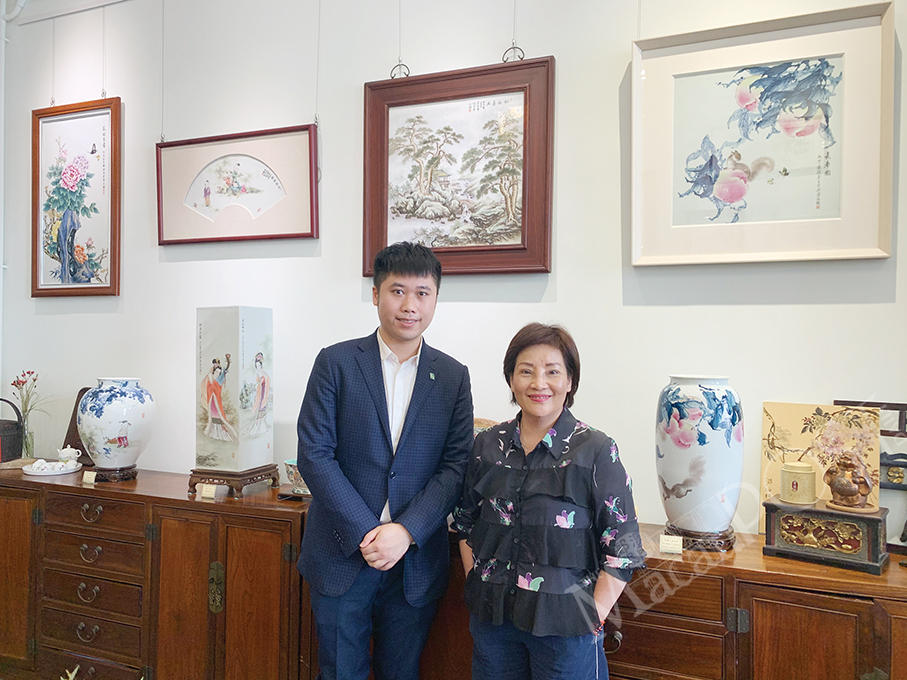
Tea Art Professionals’ Association of Macau President Mandy Chan Pui Lan (right) and Chairman Andrew U Chi Him pose at the association’s tea house in Avenida de Almeida Ribeiro last week. Photos: Prisca Tang
